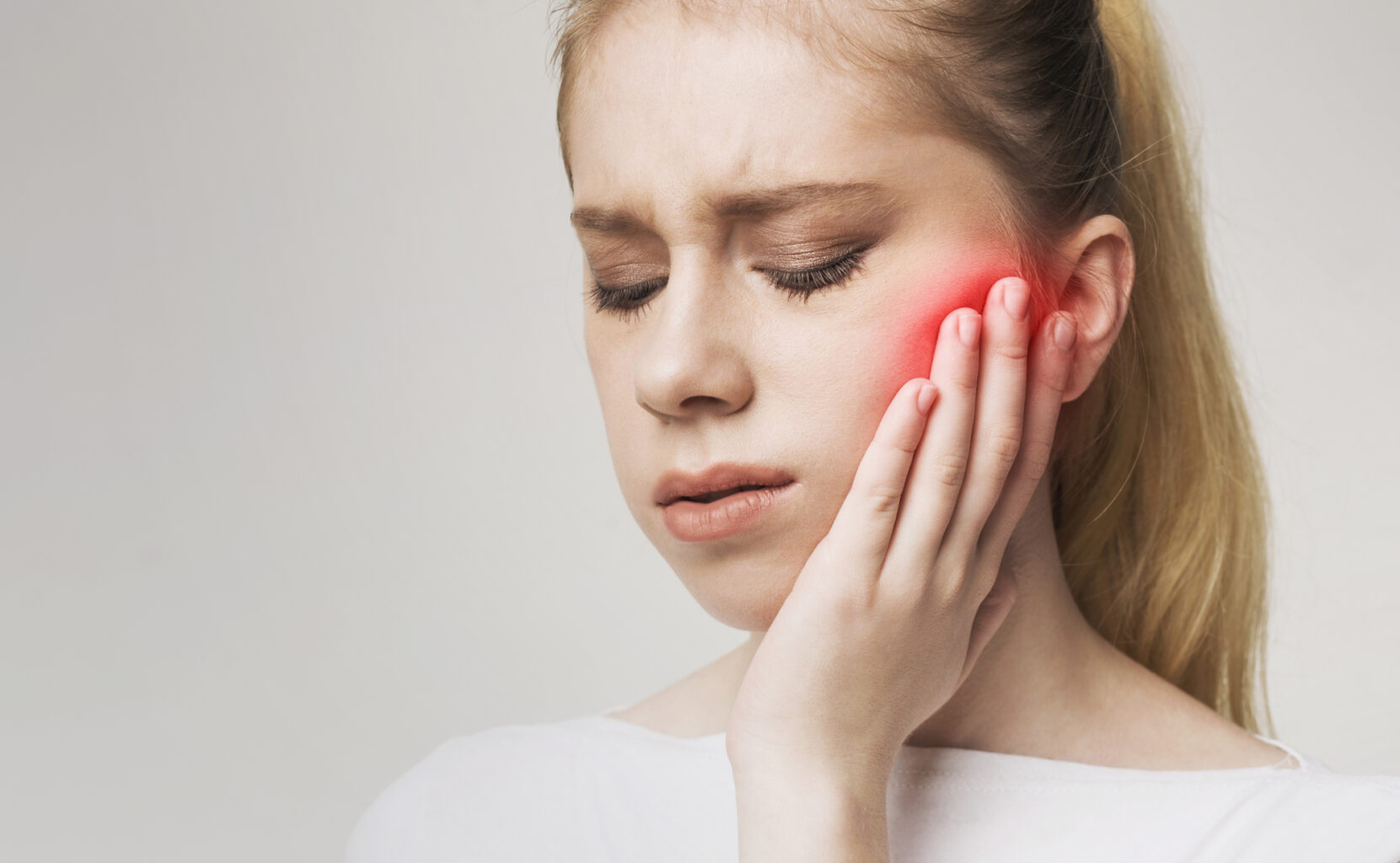
Stressed? Not getting quality sleep? Suffering from persistent jaw pain? These could be related to teeth grinding (bruxism). Most people don’t realize they grind their teeth at night until someone tells them, or they visit the dentist. Bruxism is usually a response to too much stress, but it can also be a side effect of sleep apnea or improperly aligned teeth.
Jaw pain related to teeth grinding should be immediately addressed by a dental professional. Continue reading to learn about the consequences of teeth grinding and bruxism treatments.
The Effects of Teeth Grinding
Bruxism mainly hurts the jaw muscles, temporomandibular joints, and teeth. If untreated, people who consistently grind their teeth may experience the following side effects:
Worn or broken teeth
According to sleepfoundation.org, people who grind their teeth at night exert up to 250 pounds of force on their teeth. For comparison, we usually use about 25 pounds of force while chewing. Based on these numbers, it should come as no surprise that people who suffer from bruxism also experience worn or broken teeth.
Jaw pain may be related to teeth grinding if you also experience dental pain or sensitivity in your molars. Cracks or breaks in teeth can eventually lead to cavities and gum disease.
Constant headaches and jaw pain
Bruxism often causes dull headaches and jaw pain in the morning that linger throughout the day. Don’t ignore these symptoms; they could be pointing you to a deeper issue.
Poor sleep
Teeth grinding can cause poor sleep, but it can also be an indication of obstructive sleep apnea. If it’s the former, seek treatment immediately. Not only does bruxism have serious side effects, so does a lack of high-quality sleep.
Limited jaw function
Eventually, people who consistently grind their teeth may find it difficult or painful to chew and speak. After exerting so much force on the jaw muscles and joints, they may become inflamed and irritated, limiting their abilities.
Bruxism Treatments and Remedies
Ready for relief from jaw pain and other symptoms of bruxism? Trained and experienced dental professionals offer the following treatments to reduce and eradicate teeth grinding:
- Mouthguards: To start out, your dentist may recommend a custom mouthguard. This will reduce the pressure put on your teeth throughout the night and diminish the symptoms of bruxism. These mouthguards are custom-made, so they are comfortable and won’t disrupt your sleep.
- Orthodontic treatment: When bruxism is caused by malocclusion, orthodontic treatment could be the answer. Your treatment may involve traditional metal braces or Invisalign® clear aligners.
- BOTOX® Therapy: If your teeth grinding is a result of TMJ disorder, BOTOX Therapy can relax the jaw muscles to reduce teeth grinding. Patients typically experience noticeable results after one or two treatments. These results can last up to four months.
Teeth grinding that is caused by stress and excess caffeine can be remedied by at-home practices like:
- Herbal tea or turmeric milk before bed
- Avoid caffeine in the afternoon
- Exercise for at least 30 minutes daily to reduce stress and expel energy
- Take a warm shower or bath before bed
- Relax the jaw muscles with a warm compress or lavender oil
Find the Root Cause of Your Jaw Pain in Sacramento, CA
Persistent jaw pain shouldn’t be ignored. Dr. Timothy Mickiewicz can find the underlying cause of your jaw pain and treat it accordingly. Call our friendly dental team today at (916) 469-9178 to schedule a consultation with Dr. Mick.


